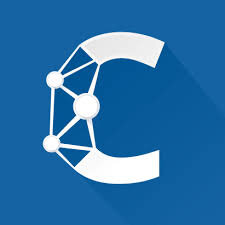Class Central: Never Stop Learning - Discover free online classes (MOOCs) from top universities like MIT, Harvard, Penn, etc.
 Class Central is an aggregator of MOOC course listings and continually looks for and bring you high-quality MOOCs from reputable providers (and not just from the major providers).
Class Central is an aggregator of MOOC course listings and continually looks for and bring you high-quality MOOCs from reputable providers (and not just from the major providers).
Frequently Asked Questions
What are MOOCs?
MOOCs stand for Massive Open Online Courses. These are free online courses from universities around the world (eg. Stanford Harvard MIT) offered to anyone with an internet connection. Several popular MOOC provider platforms have emerged, such as Coursera, Udacity, EdX, and NovoEd, that partner with universities and professors to offer MOOCs on their platforms.
How much do they cost?
They are free!
Who can signup for MOOCs?
Anyone can signup!
How do these MOOCs or free online courses work?
MOOCs are designed for an online audience, teaching primarily through short (5-20 min.) pre recorded video lectures, that you watch on weekly schedule when convenient for you. They also have student discussion forums, homework/assignments, and online quizzes or exams.
How do I register for a course?
To register for a course, click on "Go to Class" button on the course page. This will take you to the providers website where you can register for the course.
Will I receive a certificate for completing a MOOC?
Most MOOCs offer a certificate of completion upon achieving a certain grade in the course. You will need to see the details for each MOOC to see whether they offer a certificate. Note that this certificate is usually issued in the name of the MOOC platform provider (e.g. Coursera, edX, Udacity, etc.), and not the university of the professor who is teaching the MOOC. Some platform providers also offer a verified certificate for an extra fee, which validates your identity, and thus might be a better proof of course completion. But again, these are not issued by the universities themselves, and please check the details of each course to see what types of certificates, if any, they offer.
Will I receive any course credit for completing a class?
Generally not. Although universities sponsor most MOOCs, students are not registered with the university, but are taking the course through the platform provider (e.g. Coursera, edX, Udacity, etc.). Some courses offer a ‘Statement of Accomplishment’ (sometimes with ‘Distinction’), but these are issued in the name of the MOOC provider. With some courses, Coursera offers a ‘Signature Track’ and edX offers a 'Verified Certificate of Achievement', which, for a fee, verifies that the student has completed the course. Note that although taking MOOCs usually does not result in college credit, many individuals list MOOCs they have completed as training experience on their profiles or resumes.
What types of courses are offered?
Although initially many MOOCs were focused on computer science and engineering, MOOCs have expanded and now a wide range of subjects are being offered, in fields such as business, medicine, music, social science, literature, the humanities, and more. New courses are being added everyday! More...


/https%3A%2F%2Fp1.storage.canalblog.com%2F20%2F55%2F1154600%2F122555108.png)
/https%3A%2F%2Fencrypted-tbn2.gstatic.com%2Fimages%3Fq%3Dtbn%3AANd9GcTi5Hkm0uJx8RuXLdIN4NSGeutjLR0NZnG3tTJBq9IYhTpD2Hdf5SvxmA)
/https%3A%2F%2Fprofilepics.canalblog.com%2Fprofilepics%2F1%2F0%2F1076071.jpg)